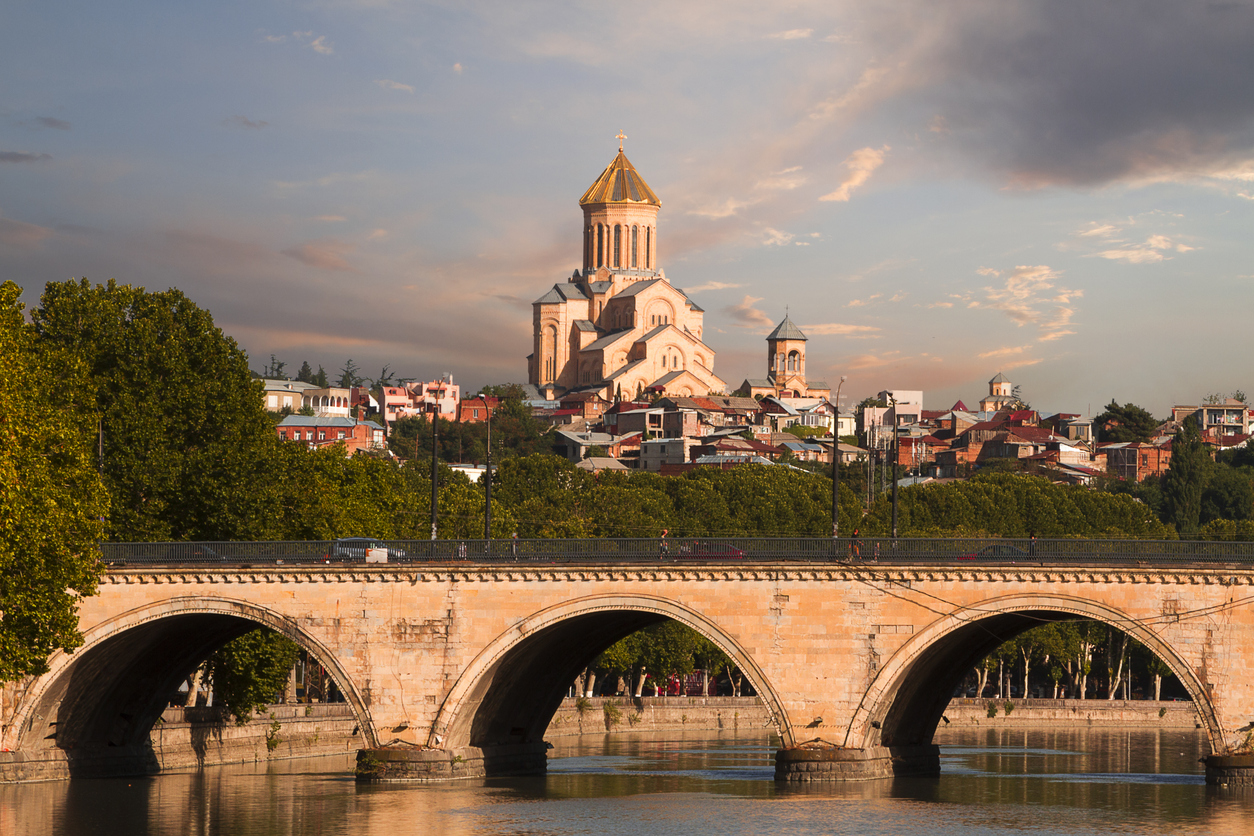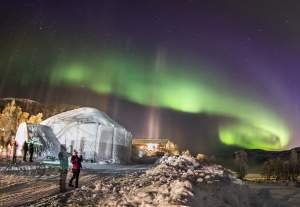
Not long ago, Georgia sat quietly on the edge of Europe and Asia — a country rich in culture and beauty, but largely unknown to travelers outside its immediate region. That’s changed. In just the last few years, Georgia has exploded onto the radar of tourists, digital nomads, and adventure seekers looking for something beyond the usual European experience. But why now? And what’s really driving the buzz?
If you haven’t heard much about Georgia yet, it’s time to pay attention. This country is offering something rare: affordability, safety, warm hospitality, and an almost untouched natural and cultural landscape. Here’s a deep dive into why everyone’s suddenly talking about Georgia — and why you should be, too.
A Blend of Cultures You Can’t Replicate
Georgia sits at a literal crossroads — between Europe, Asia, the Middle East, and Russia. That location has made it a cultural sponge over the centuries. You’ll find Orthodox churches next to Zoroastrian temples, Persian and Byzantine architectural influences, and food that blends flavors from all directions.
But unlike places that feel “in between,” Georgia has developed an identity all its own. Georgian script is completely unique. The language has no close relatives. Its traditional polyphonic music is haunting and beautiful. The result? A travel experience that feels completely different from anywhere else.
A Food Scene That’s Finally Getting Recognition
If you’ve never tried khachapuri (cheese-filled bread that’s equal parts comfort food and carb overload), you’re in for a treat. Georgia’s cuisine is getting international recognition for good reason. It’s rich, flavorful, and diverse, with influences from the Mediterranean, the Middle East, and Central Asia — and yet entirely its own.
Staples like khinkali (soup dumplings), badrijani nigvzit (eggplant rolls with walnut paste), and chakapuli (herb-forward lamb stew) are now appearing on menus in foodie capitals around the world. But the best way to experience them is, of course, in Georgia itself — where meals are served family-style, the wine flows freely, and the table becomes a celebration.
The Birthplace of Wine — Literally
Georgia doesn’t just produce wine. It’s where wine was invented. Archaeologists have found evidence of wine production here dating back over 8,000 years. The country still uses traditional winemaking techniques, including fermenting grapes in large clay vessels called qvevri buried underground.
Wineries are everywhere, and many are still family-owned. You can visit sprawling vineyards in Kakheti, sip amber-colored wine straight from the qvevri, and enjoy views of the Caucasus Mountains in the distance — all for a fraction of what a tasting tour would cost in Western Europe.
Tbilisi: The Capital That Keeps Surprising People
Tbilisi is what happens when old-world charm meets post-Soviet grit and creative resurgence. One moment, you’re walking down a cobblestone street lined with pastel-colored balconies; the next, you’re stepping into a Brutalist building that’s been turned into a sleek coffee shop or gallery space.
The city’s blend of architecture, history, and modern creativity makes it a playground for curious travelers. It’s also becoming a magnet for digital nomads and remote workers, thanks to fast internet, low rent, and a café scene that rivals any hip European capital.
There’s something magnetic about Tbilisi — it feels raw and polished at the same time. And despite the growing buzz, it hasn’t lost its authenticity.
The Mountains Are No Joke
If you’re into hiking, climbing, or just staring slack-jawed at dramatic peaks, Georgia delivers. The Caucasus Mountains slice through the northern part of the country, offering trails and terrain that rival anything in the Alps or Rockies — but with far fewer tourists and much lower prices.
Kazbegi, Mestia, and Ushguli (one of the highest permanently inhabited villages in Europe) are just a few destinations where you’ll find glaciers, alpine lakes, medieval stone towers, and a level of remoteness that’s hard to come by in more developed parts of Europe.
Adventure tourism is still in its early stages here, which means less infrastructure but more wild beauty. And you don’t need a huge budget to explore — guides, gear rentals, and guesthouses are extremely affordable.
Visa-Free Access and Long Stays
One of the biggest draws for remote workers and long-term travelers is how easy Georgia makes it to stay. U.S. citizens, along with many others, can enter visa-free and stay for up to 365 days. No paperwork, no hassle.
This open-door policy has made Georgia especially attractive to digital nomads, retirees, and slow travelers. The government even launched a “Remotely from Georgia” initiative in 2020 to attract remote workers, and while the formal program has faded, the infrastructure and attitude toward long-stayers remain strong.
It’s Still Ridiculously Affordable
Georgia is one of the rare countries where you can live comfortably on a modest budget. A decent apartment in Tbilisi rents for $300–$600 per month. A meal at a mid-range restaurant might cost $6–$10. Public transportation is efficient and cheap. Even mountain towns — often expensive in other parts of the world — remain budget-friendly.
This makes Georgia a smart choice not just for backpackers, but also for digital nomads who want European flair without European price tags. The country also uses its own currency, the Georgian lari (GEL), which often provides favorable exchange rates for U.S. dollars and euros.
A Growing Scene of Creatives and Entrepreneurs
It’s not just tourists and nomads who are noticing Georgia. Artists, writers, start-up founders, and investors are beginning to circle the country, drawn by the low cost of living and the freedom to experiment.
Tbilisi in particular has become a mini hub for fashion, design, and independent publishing. The Fabrika complex — a converted Soviet-era sewing factory — is now home to co-working spaces, galleries, cafes, and studios. Events, pop-up shops, and underground music festivals happen here regularly, adding a layer of energy that rivals much larger cities.
The People and the Pace
Ask anyone who’s been to Georgia what stood out, and you’ll hear one thing over and over again: the people. Georgians are famous for their hospitality. In fact, there’s a word for it — “supra” — which refers to the traditional Georgian feast, but also reflects a broader cultural value of generosity and community.
It’s a country where strangers offer homemade wine, taxi drivers become tour guides, and dinner invitations come easily. The overall pace of life is slower, more deliberate. It’s a place where you’re encouraged to sit down, share a meal, and stay awhile.
Is It Too Late to Visit Before the Rush?
Not yet — but it’s headed there. More low-cost airlines are flying into Tbilisi and Kutaisi. Travel publications are finally catching on. Real estate prices are creeping up in the capital. And with the rise of remote work, Georgia’s appeal is spreading fast.
That said, there’s still time. The infrastructure is still catching up to demand, which means some rough edges — but also fewer crowds, more personal interactions, and the kind of discovery you rarely find in cities overrun by tourism.
Georgia isn’t just a place to visit — it’s a place to experience. It offers the kind of depth, beauty, and affordability that’s becoming increasingly rare. Whether you’re a remote worker looking for a base, a traveler seeking new frontiers, or a foodie chasing your next obsession, Georgia delivers.
It’s a country where the mountains touch the sky, where wine flows from ancient clay pots, and where every meal is an invitation to connect. In a travel world that too often feels copy-pasted, Georgia feels original.
That’s why everyone’s talking about it. And why you probably will be, too — once you’ve been.







